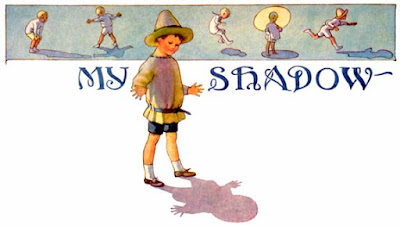Round One of the
2nd Annual March Madness competition (a thrilling, maddening, intoxicating poetry-under-pressure playoff) is underway at Ed DeCaria's THINK KID THINK. How he manages to organize and keep up with the avalanche of work involved (this first round = 64 poems from 64 poets!) just boggles the mind. He designed the competition, posted the brackets, posted overviews and a calendar, assigned us all our Round One words (no, we can't just write anything we want - we have assigned words, with different levels of difficulty.)
Tomorrow? New words, new poems. For a good explanation of how it all works, click
here. Ed, thanks!
What makes it a competition?
Readers get to vote for their favorites! (Don't hesitate - voting ends on a staggered basis throughout the day today.)
Here's my approach to the contest: If, as a poet, you enter the Madness feeling anxious, terrified and/or cutthroat, it's probably not too pleasant. But if you enter for the delight of it (it's amazing to see what people can come up with quickly) then it's a lot of fun. 64 poets at play!
My assigned word for Round One? "Diphthongs."
 |
| English Vowel Sounds (those with two separate symbols in one box are gliding vowels, aka diphthongs.....as in #20 - "how") |
|
Yes, DIPHTHONGS! (I thought that was bad - someone got "anthropomorphization" and someone else got "necrotize.") My word turned out to be the perfect challenge - I had a ball coming up with something kids might enjoy (and I might, too.) Bottom line: Win or lose, I have a new poem I like.
Click
here to read it (I've also pasted it in below) and also read its rival, a poem by Victoria Warneck (assigned word: "dazzle) yesterday.
And click
here for "the scoreboard" - a list of links to all Round One pairings, divided into Flight One (vote by early afternoon today - Friday) and Flight Two (vote by 7:30 tonight.) You can vote easily at each link.
I know that by the time you read this, there might not be much time left to vote. But if you miss the Round One deadlines you can still vote in all the other rounds - they'll come fast and furious in the next few days (which is why we say "poetry under pressure"!) so be looking for new scoreboards and poems posted overnight at Think Kid Think.
Many regular Poetry Friday poets are part of the competition - check out poems by Laura Purdie Salas, Renee LaTulippe, Mary Lee Hahn (whose poem sent me down for the count in Round Three of last year's Madness!), April Halprin Wayland, Amy Vanderwater, Heidi Mordhorst, Robyn Hood Black, Greg Pincus, Katya Szaja, Linda Baie, Laura Shovan, susan Taylor Brown and Charles Waters - all of them have poems up in the First Round. Special shout-outs to Vermont College of Fine Arts students and alums Anna Boll, Callie Miller and Jim Hill. Go, Team VCFA!
Take a few minutes to vote for your favorites!
Here's what I submitted for Round One:
Hound Dog’s Lament
I’m the Duke of Diphthongs – I know that it sounds nuts,
but when I howl the vowels glide around, unlike a normal mutt’s.
I howwww-owwww-owwwl my head off. I never bark, I mourn.
I have to play my diphthongs just like Louis Armstrong played his horn.
A dachshund is no Blues Man – his song consists of yips.
But I’m a hound, my sound is true
to how-owwwwww-OWWWWWWWWWW a diphthong dips.
[Ed. Note: Alas, my poem did not prevail! Hound dog, I still love you, but I am out of the running, so I'm going to kick back and enjoy the show for the rest of the tournament.Have fun, poets!]
----------------------------------------------
The Poetry Friday round-up today is being hosted by Jone at
Check It Out. Head over there to see what other people have posted.























